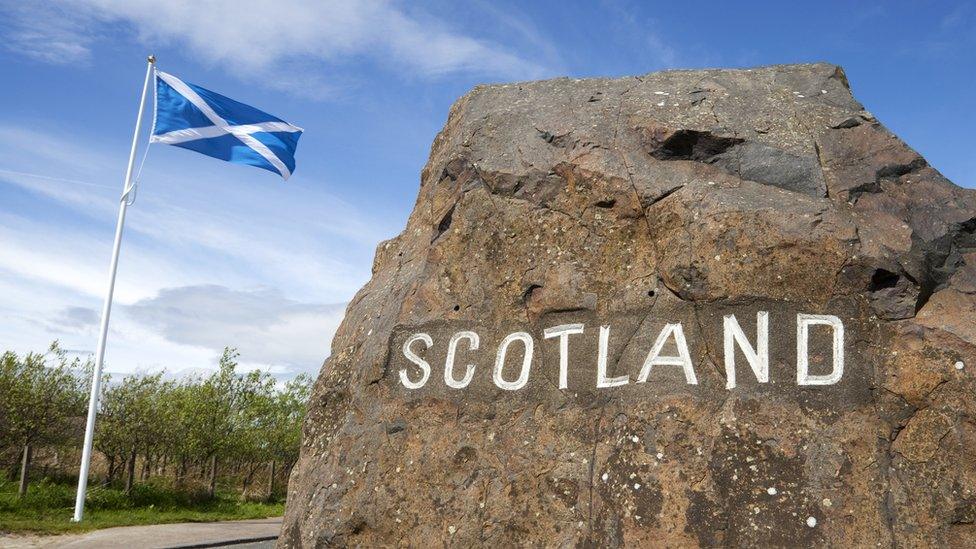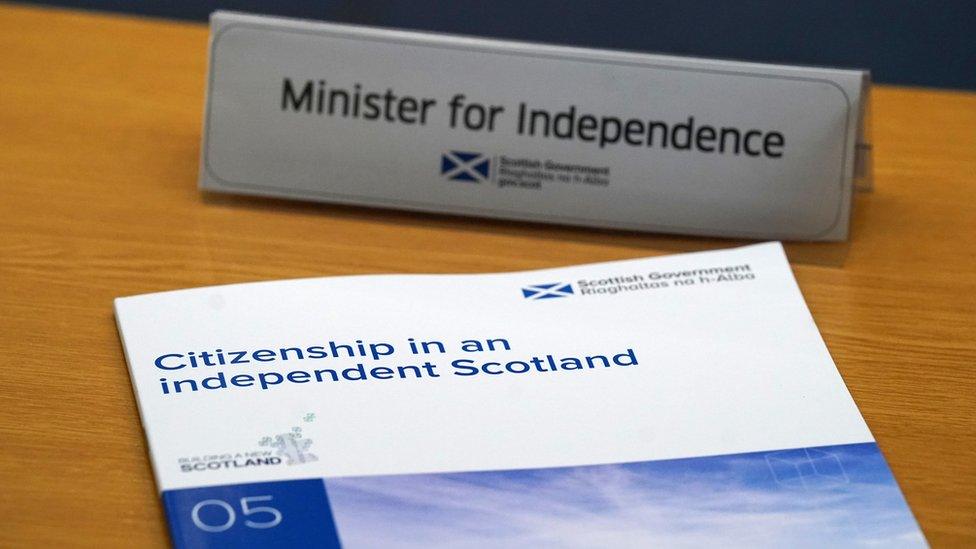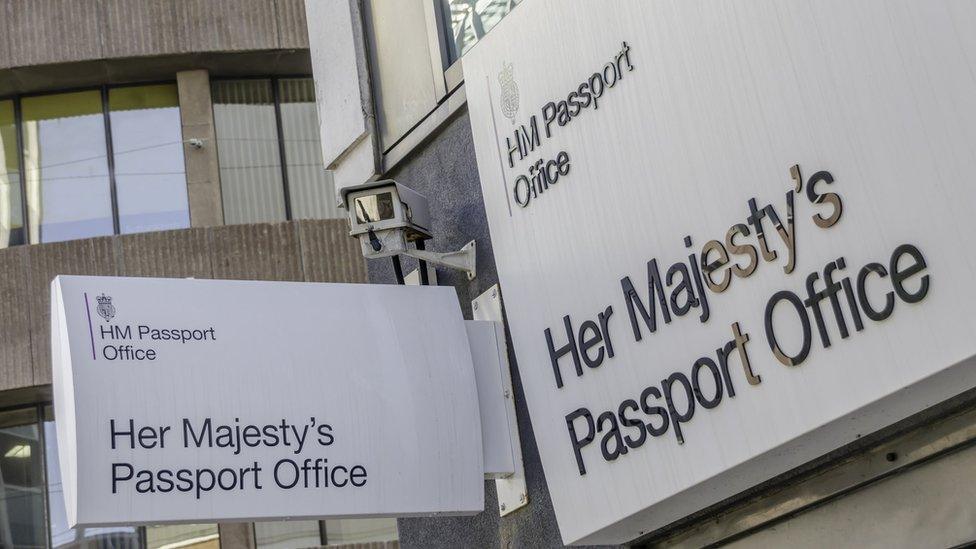At a glance: Who would be a Scottish citizen after independence?
- Published

Scotland's first minister Humza Yousaf has set out plans for citizenship in an independent Scotland.
The proposals were published in the latest paper in the Building a New Scotland series.
Mr Yousaf said he wanted what he called a "fairer and more welcoming approach" to citizenship than the current UK system.
The Scottish government paper says it is a vision for an inclusive model of citizenship after independence.
Would I be a Scottish citizen?

If you are a British citizen living in Scotland on the day it became independent, you would be entitled to Scottish citizenship.
The same applies if you were born in Scotland.
In both cases, the paper says you will automatically qualify for citizen services without having to do anything else.
If you do not live in Scotland you would automatically qualify for citizenship so long as one of your parents was a British citizen born in Scotland or if you have previously lived in Scotland for at least 10 years, or five years as a child. Young adults applying would face an assessment of the time they had lived in Scotland.
In these kinds of cases you might have to provide evidence of your eligibility before accessing services.
The paper says there would be an opt-out available to those who did not want to automatically become a Scottish citizen.
What if I am not a British citizen?
The right to citizenship would be open to Irish citizens living in Scotland, and children of any nationality living in Scotland who were brought up there.
People from other countries could become naturalised Scottish citizens if they have lived in Scotland for at least five years and been "settled" in Scotland for at least 12 months.
This means having the right to live and work in Scotland without restrictions such as needing a visa.
What would happen to my passport?

The proposals say Scottish citizens would be able to hold a new Scottish passport after independence.
Any currently valid UK passports would continue to be recognised in Scotland until their expiry date.
The application process for the new passport would be the same as currently exists for the UK passport.
At the launch of the paper, Mr Yousaf announced the new passports would revert to the burgundy colour they were before the UK left the European Union.
Could I work and live in an independent Scotland without being a Scottish citizen?
The paper proposes that Scotland would remain in the Common Travel Area after independence.
This would retain the right of British and Irish citizens to work in Scotland without restriction. Scottish citizens would retain these same rights throughout the British isles.
The paper summary says: "Once Scotland re-joined the European Union, Scottish citizens would once again become EU citizens. This would allow them and their families to live, work and study freely across all 27 current EU member states, as well as Norway, Iceland, Liechtenstein and Switzerland".
What happens to future generations?
Children born in Scotland after independence would automatically be Scottish citizens if at least one of their parents was a Scottish, British, or Irish citizen.
A new-born would also qualify under new Scottish immigration laws if he or she was "settled" in Scotland under the country's independent immigration laws.
A child born outside Scotland after independence would automatically be entitled to Scottish citizenship if at least one of their parents is a Scottish citizen.